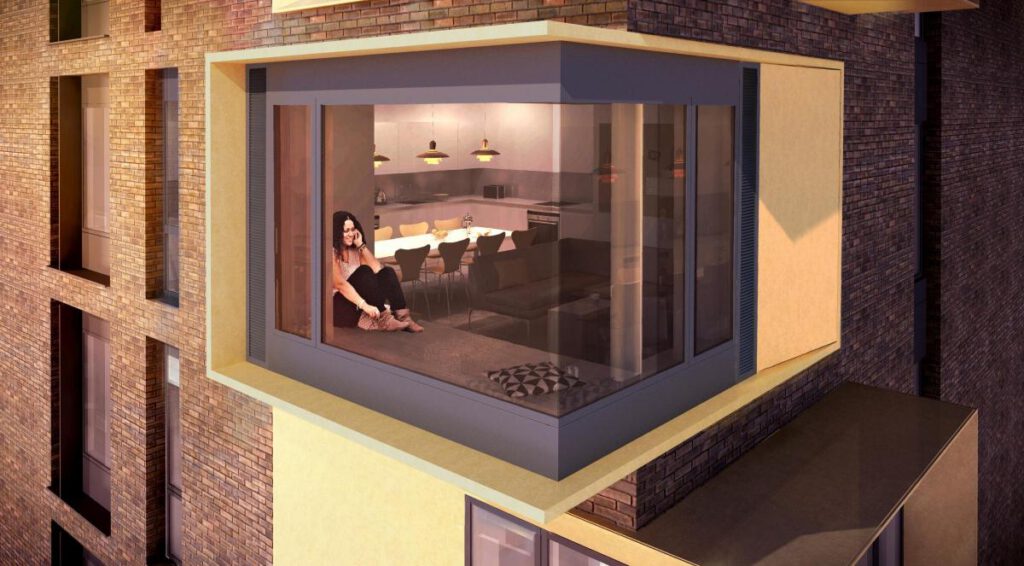Arts University Bournemouth gets set for new student accommodation complex

Arts University Bournemouth (AUB) is due to start work on a new, state-of-the-art student accommodation complex later this year after securing a £20 million finance facility from HSBC UK.
The new development, which will be situated adjacent to the campus in Wallisdown, will include en-suite accommodation for up to 300 students.
The AUB Halls of Residence will also enjoy impressive sustainability credentials, including upgraded pedestrian and cycle routes connecting the site with the nearby Bus Hub and the wider area, use of effective design measures – such as high levels of thermal insulation, natural ventilation, good air tightness and efficient building orientation – and a net increase in the number of trees planted.
As well as the multi-million pound finance package from HSBC UK, AUB is benefitting from a wider package of support from the bank to help meet its aspirations to become a leading creative university with national employment accolades. This includes a series of strategic roundtable discussions organised by HSBC UK, introductions to leading industry professionals and international counsel as AUB explores emerging markets for higher education collaboration and partnerships.
HSBC UK’s support also extends to the university’s students. Its ongoing financial wellbeing programme, delivered by the retail banking and wealth management (RWBM) team, has helped students plan and manage their finances as part of the university’s growing commitment to the health and wellbeing of those studying at the institution.
Nick Welch, Chief Operating Officer at Arts University Bournemouth, said: “AUB’s new campus development will help meet increasing demand for high quality student accommodation that is located in close proximity to the campus. Our decision to partner with HSBC UK for this project wasn’t purely based on its financial competitiveness. The team, led by Richard Hoyle, was able to demonstrate a host of value-added initiatives which will help us realise our growth ambitions and support our students. We look forward to getting started on the work and welcoming new students to the campus in 2020.”
As well as being awarded Gold by the Teaching Excellence Framework (TEF), which assesses the quality of teaching across higher education institutions, AUB also boasts a graduate employment rate of 98%, which is the joint highest employment rate of an English university.
Suzy Verma, Head of Public Sector and Education at HSBC UK, commented: “We are delighted to be partnering with such a creative and successful institution to not only support its ambitious campus development, but to build a strategic relationship with the university that adds real value to its staff and students. This includes utilising HSBC UK’s international footprint, leveraging the experience of our cross-sector teams and facilitating introductions with key industry stakeholders. It’s this strategic support that secured this long-term partnership with Arts University Bournemouth.”
Anthony Reed, HSBC UK’s Area Director for Hampshire and Dorset, added: “Our team has been building a relationship with AUB for many years and understanding its strategy and wider positive impact has enabled us to put the right finance package together for the new campus development. HSBC UK is committed to supporting the higher education sector, both here in Dorset and further afield, and it is a privilege to be working with universities, independent schools and local authorities to support their ambitions and fuel growth and employment.”
AUB is a leading arts university for the creative industries, established in 1885, and is one of a small number of higher education institutions in the UK devoted solely to the study of art, design, media and performance across the creative industries.
*98% of the class of 2015/16 are in employment or undertaking further study. This is the joint highest employment rate of any English university (from the 2017 DLHE survey of 2015/16 graduates’ activities).











Responses